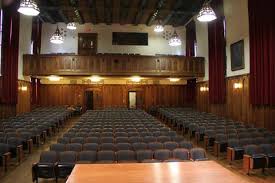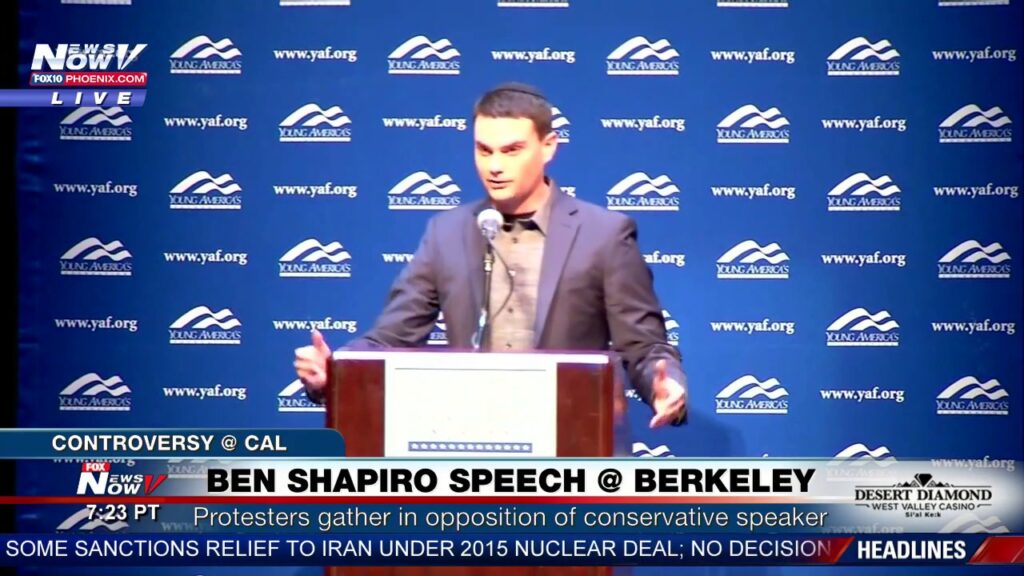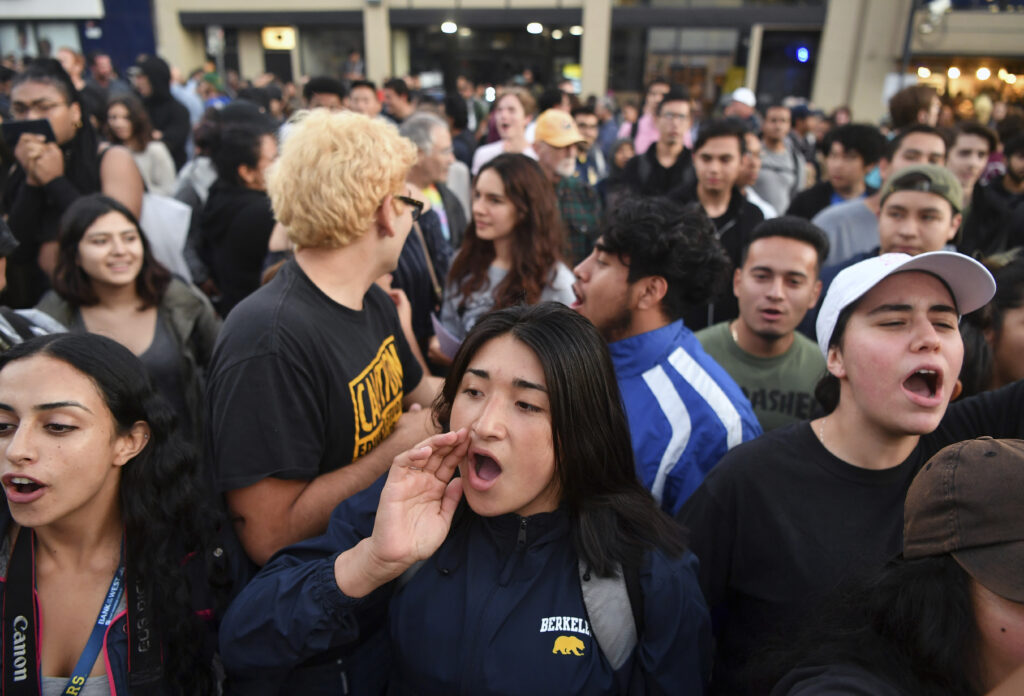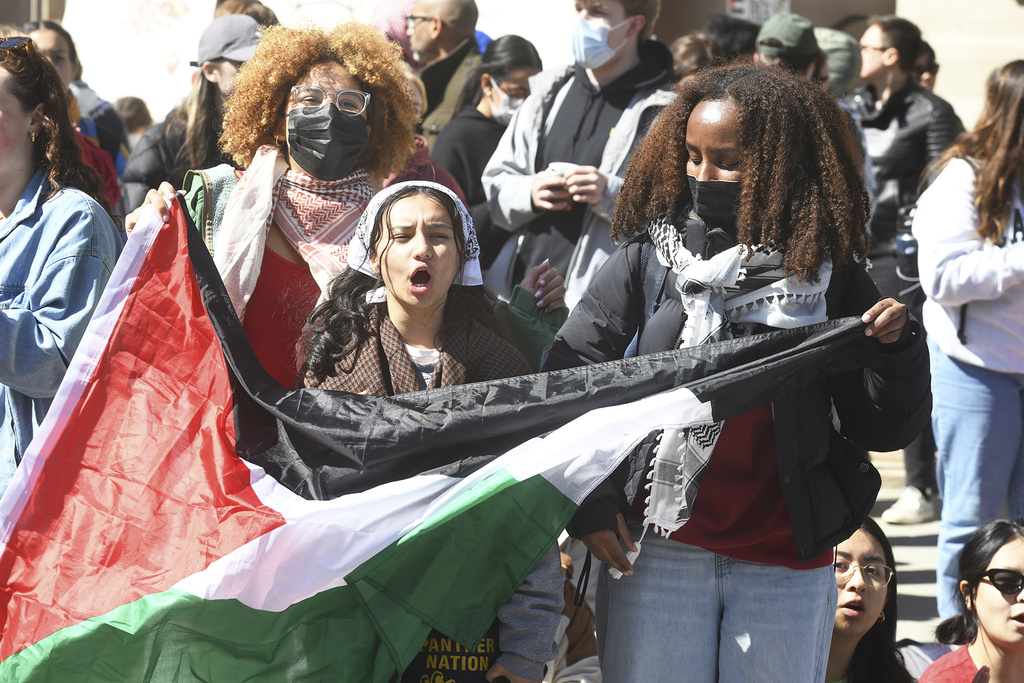Yale’s Jewish Students Divided Over Planned Speech by Ben Shapiro About How October 7 Massacre ‘Broke America’s Colleges’
The date of the speech, rather than the speaker, is what is giving some Jewish students pause.

The conservative speaker and author Ben Shapiro will speak on October 7 at Yale, whose campus was convulsed by virulent anti-Israel protests following Hamas’s attack on Israel last year. Mr. Shapiro, whose visits to university campuses often lead to unrest by left-wing groups opposed to his presence, will address an on-campus lecture hall on “How October 7 Broke America’s Colleges.”
The Buckley Institute, an independent organization dedicated to promoting free speech at Yale, is hosting the event along with the well-funded conservative group, Young America’s Foundation — and Mr. Shapiro’s forthcoming appearance, to no surprise, is already sparking controversy.
The Daily Wire founder, who frequently travels to speak at colleges around the country, has been involved in the debate over campus free speech and university censorship of non-liberal voices long before the events of this past year. His first book, “Brainwashed,” published in 2004, warned that American universities had been captured by the “leftist agenda.”
His campus speeches, which often address hot-button political topics, consistently draw protests and require extensive security. A 2017 talk hosted by Mr. Shapiro at the University of California, Berkeley, entitled “Say No To Campus Thuggery,” cost the university and the city of Berkeley $600,000 on police and security. In anticipation of the event, the Berkeley City Council even reversed a 20-year ban on pepper spray to allow the police force to use the weapon on unruly protesters.

Police arrested nine protesters outside of the event. In the days following, UC Berkeley announced that it would be offering counseling services for students and staff experiencing trauma from the presence of Mr. Shapiro, who’s been vocal in his criticism of on-campus diversity initiatives. “We are deeply concerned about the impact some speakers may have on individuals’ sense of safety and belonging,” a student-wide campus notice stated. “No one should be made to feel threatened or harassed simply because of who they are or for what they believe.”
Mr. Shapiro mocked the school’s efforts, stating that, “If you feel you need counseling because of my speech, you probably did need some sort of psychiatric help before that.”
The previous year, when Mr. Shapiro spoke at California State University, Los Angeles on the topic “When Diversity Becomes a Problem”, protesters blockaded the entrances and exits and pulled the fire alarm.
Following the events at California State and Berkeley, some schools have resisted appearances by Mr. Shapiro. Such was the case with DePaul University, which denied a request by a conservative student group to host the political figure, citing “security concerns.”

For Mr. Shapiro’s upcoming talk, the Buckley Institute, named for the late columnist William F. Buckley Jr., a Yale graduate who’s considered the intellectual founder of the American conservative movement, is collaborating with a conservative youth non-profit, Young America’s Foundation, which exclusively manages Mr. Shapiro’s campus appearances.
Security for the event, according to Young America’s Foundation’s communications director, Spencer Brown, will be paid for by YAF and Buckley.
Mr. Shapiro’s appearance, Mr. Brown said, will focus on the aftermath of Hamas’s attack on October 7 and will be heavily guided by student questions.
“Having the conservative pro-Israel perspective presented for once instead of having the unhinged pro-Hamas agitators driving the entire conversation is a good opportunity to provide some balance, sanity, and truth about what’s going on,” Mr. Brown tells the Sun.

The Buckley Institute says its mission is to expose Yale’s students to “often-unvoiced views” and to “challenge ideological complacency.” Buckley hosted Mr. Shapiro on Yale’s campus in 2016 for a discussion titled “White Privilege, Multiculturalism, and Other Leftist Myths.” According to the Institute, “hundreds of students” have already expressed interest in attending the upcoming event, which will also be open to the public.
Bringing Mr. Shapiro to speak about “how elite campuses devolved into antisemitism” after the deadliest attacks on Jews since the Holocaust “is only natural,” the executive director of the Buckley Institute, Lauren Noble, tells the Sun. Mr. Shapiro, who was raised in an orthodox Jewish household and has long identified as a Zionist, has been, both before and after October 7, a prominent supporter of Israel’s right to defend itself.
After his event at Yale, Mr. Shapiro will speak at UCLA, Cornell, and Vanderbilt. His campus tour is meant to “break up the left’s monopoly on ideas and bring truth and sanity back to American colleges and universities,” Young America’s Foundation wrote in announcing the campus lecture program.
Jewish students at Yale are divided over the upcoming talk, in part because it’s happening on October 7. “From the conversations I’ve had with Jewish students on campus, it is clear that people have quite varied opinions on the event,” a senior Yale undergraduate, Netanel Crispe, tells the Sun. Mr. Crispe is an active member of Yale’s Jewish community and sits on the board of the university’s Chabad, an orthodox Jewish organization.

“For the most part,” he continues, “Jewish students aren’t so concerned by having him on campus as much as they are uncomfortable with him being here on October 7.”
Some Jewish students, he says, are concerned that Mr. Shapiro’s talk might pull attendees away from the October 7-related events being organized by Jewish groups. Hillel and Chabad are both expected to hold campus commemorations for October 7. A Jewish leadership society at Yale, Shabtai, is also slated to host a concert featuring Hasidic Jewish singer, Yehuda Green, titled “We Shall Dance Again.”
Other Jewish students, Mr. Crispe says, were hoping to keep the anniversary apolitical and use the day to commemorate the victims of the Hamas massacre. “They don’t want the event to create political polarization and division on campus,” he says. While Ms. Noble did not disclose whether Buckley was anticipating a large protest presence, she noted that the organization was working in “close coordination with Yale security and administrators” to “ensure the event runs smoothly and without disruption.”
Other Jewish students are embracing the event — and the ensuing controversy — with more enthusiasm. “One of the reasons for Yale’s infamous illiberal groupthink is the lack of exposure to people who think differently,” one Yale undergraduate, Mitchell Dubin, who is Jewish, tells the Sun. “Ben Shapiro thinks differently. That’s why the campus mob is angry merely over his presence. And that’s why Buckley is doing a service to the community in bringing him here.”

And as for Mr. Crispe himself? He’s planning to attend — “for now.” He is optimistic that the event will draw the involvement of hundreds of Yale community members who otherwise would not have participated in October 7 programming.
Yale, like many college campuses across the country, was rocked by anti-Israel protests and encampments that broke out this past spring. During one demonstration, over 40 Yale students were arrested for refusing to clear out from their anti-Israel encampment on a university plaza. The sweep came just days after a Jewish student who was reporting on an encampment was stabbed in the eye with a Palestinian flag and lightly injured.
Just a few weeks ago, the university announced that it would consider adopting a policy of “institutional neutrality” and refrain from taking stances on world events which do not directly involve the school. A committee of seven professors will offer a recommendation to the president by the end of the semester.

